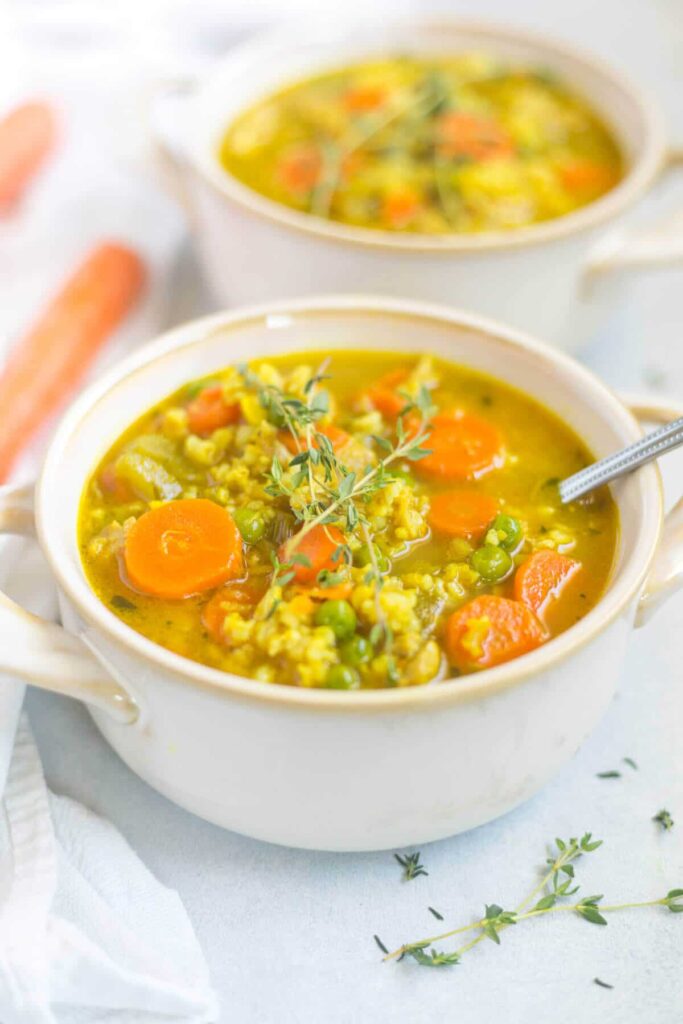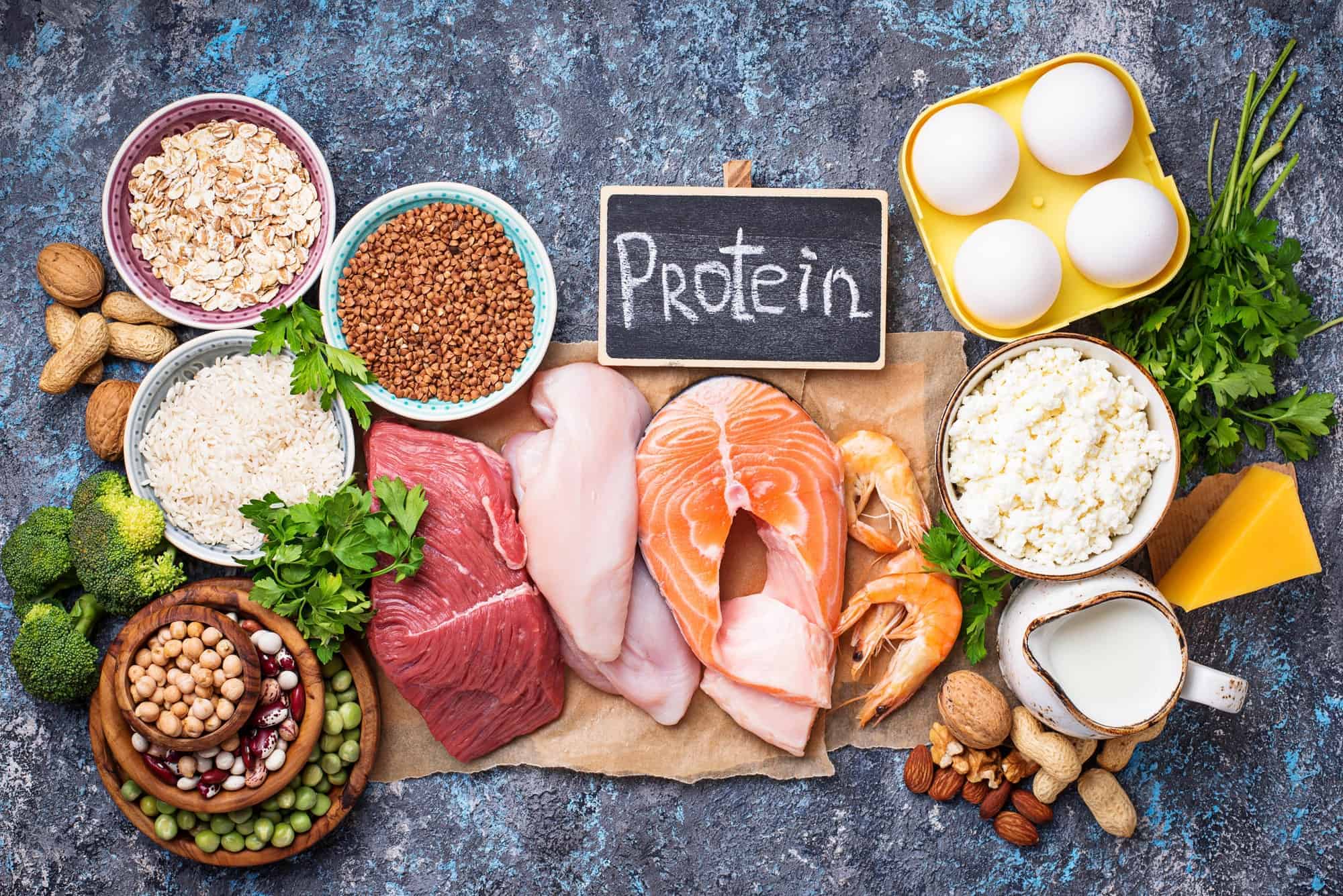How to Make Nutritious Soup Recipes for a Healthy Diet

In the vast landscape of culinary delights, soup stands out as a comforting and nourishing staple. Imagine a chilly evening, a warm bowl of soup in your hands, and the aroma of wholesome ingredients filling the air. Soup isn't just a meal; it's an experience that can be both comforting and nutritious. Whether you're looking to shed a few pounds, boost your energy, or simply enjoy a hearty meal, nutritious soup recipes can be a game-changer. Let's dive into the world of healthy soups and discover how you can incorporate them into your meal plans for a balanced and delicious diet.
The Benefits of Nutritious Soup Recipes
Soup is more than just a warm liquid; it's a powerhouse of nutrients. From protein-rich broths to low-calorie vegetable soups, these recipes offer a myriad of health benefits. They are easy to digest, packed with vitamins and minerals, and can be a fantastic way to incorporate a variety of vegetables into your diet. Moreover, soups are incredibly versatile, allowing you to experiment with different flavors and ingredients to suit your taste buds and dietary needs.
Essential Ingredients for a Wholesome Soup
When it comes to making a nutritious soup, the key lies in the ingredients. Here are some essential components that you should consider:
Vegetables: The Foundation of Health
Vegetables are the cornerstone of any healthy soup. They provide essential vitamins, minerals, and fiber. Opt for a variety of colorful vegetables like carrots, spinach, bell peppers, and zucchini. These not only add a burst of flavor but also enhance the nutritional value of your soup.
Protein-Rich Options
Protein is crucial for maintaining muscle health and keeping you full for longer. Incorporate lean proteins like chicken, turkey, or tofu into your soups. For a vegetarian or vegan option, consider adding lentils, chickpeas, or beans, which are excellent sources of plant-based protein.
Low-Calorie Broths
Choosing the right broth is essential for a low-calorie soup. Opt for vegetable, chicken, or beef broths that are low in sodium. You can also make your own broth at home to control the ingredients and ensure it's as healthy as possible.
Wholesome Grains and Legumes
Adding grains and legumes to your soup can make it more filling and nutritious. Quinoa, barley, and brown rice are excellent choices for grains, while lentils, chickpeas, and kidney beans are great for legumes. These ingredients provide a good balance of carbohydrates, protein, and fiber.
Step-by-Step Guide to Making a Nutritious Soup
Now that you have the essential ingredients, let's walk through the process of making a nutritious soup.
Step 1: Prepare Your Ingredients
Start by washing and chopping your vegetables. This step might seem tedious, but it's crucial for ensuring that your soup cooks evenly. You can also pre-cook your protein if needed.
Step 2: Sauté the Aromatics
Heat a small amount of olive oil in a large pot and sauté your aromatics like onions, garlic, and ginger. This step helps to build the flavor base of your soup.
Step 3: Add the Vegetables
Once the aromatics are softened, add your chopped vegetables. Cook them for a few minutes to bring out their flavors.
Step 4: Pour in the Broth
Add your chosen broth to the pot. Make sure to use enough liquid to cover all the vegetables. Bring the mixture to a boil.
Step 5: Simmer and Season
Reduce the heat and let the soup simmer. This allows the flavors to meld together. Season with herbs, spices, and a pinch of salt and pepper to taste.
Step 6: Add Protein and Grains
If you're using protein and grains, add them towards the end of the cooking process. This ensures they don't overcook and become mushy.
Step 7: Serve and Enjoy
Once everything is cooked, ladle the soup into bowls and enjoy. You can garnish with fresh herbs or a dollop of Greek yogurt for added flavor.
Creative Nutritious Soup Recipes
Here are a few nutritious soup recipes to get you started:
1. Classic Vegetable Soup
This classic vegetable soup is a staple in many households. It's packed with a variety of vegetables like carrots, celery, and potatoes, making it a wholesome and low-calorie option.
2. Chicken and Quinoa Soup
For a protein-rich soup, try this chicken and quinoa recipe. The combination of lean chicken and nutritious quinoa makes it a hearty and satisfying meal.
3. Lentil and Spinach Soup
This lentil and spinach soup is perfect for vegetarians and vegans. It's packed with plant-based protein and iron, making it a wholesome and delicious choice.
4. Tomato and Basil Soup
This tomato and basil soup is a classic comfort food. It's low in calories and high in vitamins, making it a great option for a light lunch or dinner.
5. Beef and Barley Soup
For a hearty and filling soup, try this beef and barley recipe. The combination of lean beef and nutritious barley makes it a satisfying and protein-rich meal.
Incorporating Soup into Your Meal Plans
Soup can be a versatile addition to your meal plans. Here are a few ideas:
Lunchtime Soup
Pack a thermos of soup for a quick and easy lunch. It's a great way to ensure you're getting a nutritious meal even when you're on the go.
Dinner Soup
Serve soup as a main course for dinner. Pair it with a side salad or a slice of whole-grain bread for a balanced and satisfying meal.
Soup as a Snack
A small bowl of soup can be a great snack option. It's low in calories and can help keep you full until your next meal.
Conclusion
Nutritious soup recipes are a fantastic way to incorporate wholesome ingredients into your diet. Whether you're looking for a low-calorie vegetable soup or a protein-rich chicken and quinoa soup, there's a recipe out there for everyone. By following the step-by-step guide and experimenting with different ingredients, you can create a variety of delicious and healthy soups that fit seamlessly into your meal plans. So, why not give it a try? Your body and taste buds will thank you.
FAQs
-
What are the healthiest vegetables to add to soup? The healthiest vegetables to add to soup include leafy greens like spinach and kale, cruciferous vegetables like broccoli and cauliflower, and root vegetables like carrots and sweet potatoes. These are packed with vitamins, minerals, and fiber.
-
Can I make soup ahead of time? Yes, you can make soup ahead of time. In fact, many soups taste even better the next day as the flavors have more time to meld together. Store your soup in an airtight container in the refrigerator for up to 5 days or in the freezer for up to 3 months.
-
How can I make my soup more filling? To make your soup more filling, add protein-rich ingredients like chicken, tofu, or beans. You can also include wholesome grains like quinoa or barley, which provide a good balance of carbohydrates and fiber.
-
What are some low-calorie soup options? Some low-calorie soup options include vegetable soup, tomato soup, and chicken broth-based soups. These are typically low in calories but high in nutrients, making them a great choice for a healthy diet.
-
Can I use canned vegetables in my soup? While fresh vegetables are generally more nutritious, you can use canned vegetables in your soup. Just make sure to choose low-sodium options and rinse them thoroughly before adding them to your soup.


0 Response to "How to Make Nutritious Soup Recipes for a Healthy Diet"
Post a Comment